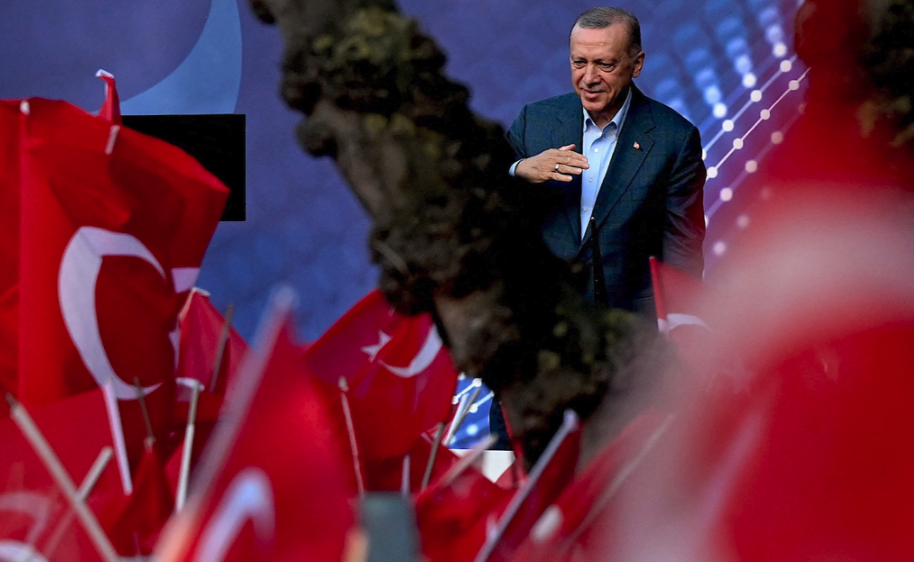Hidden away in Jan Werner Mueller’s book on populism is a gem of a quote from Recep Erdogan ‘We are the people, who are you?’ It is a powerful, defiant statement from a politician who has become the embodiment of Turkey – first by seducing its people with progress, growth and national achievement, and more recently by capturing the state – breaking and denuding its institutions, and as a result of his actions and values, annihilating its economy (inflation has pushed close to 100%). By Mike O’Sullivan in Forbes on April 28, 2023.
Erdogan will become a central figure in the news in coming weeks. While there are no major elections in G7 countries this year, the Turkish presidential election (first round is on the 14th May) is important internationally for a range of reasons.
Decisive point for Turkey
It is a decisive pivot point for Turkey, which is clinging to democracy and to the notion of a stable economic structure. A victory for Erdogan will quench that democracy and arguably cause those who still have hope for its economy to throw in the towel. It might dim forever the example of Kemal Ataturk that Turkey should strive to be secular, democratic and lean Westwards.
More broadly, Erdogan is a test case in the ‘autocratic-recession’ thesis – populists like Bolsonaro, Boris and Donald Trump have been derailed, and a change of guard in Turkey would mean that one of the longest standing populists has been rejected, and that Turkey’s democracy might again breathe.
Geopolitically the election is highly significant. There was a time when Turkey was admired as a role model and force for stability in the middle east (notably so in the aftermath of the Arab Spring) and its foreign policy maxim was ‘no trouble with neighbours’. As we have noted in this previous missive, Turkey is enmeshed in conflict at every point of the compass – stuck in the Azerbaijan-Armenia conflict, active in Libya and Syria, at odds with Israel, the most obstreperous member of the NATO alliance and a ‘frenemy of Russia. Simply put there is a lot at stake.
Kemal Kilicdaroglu
Standing against Erdogan is the veteran politician Kemal Kilicdaroglu – who has been leader of the Republican People’s Party since 2010. He is an economist and civil servant by background and generally regarded as mild-mannered though in recent weeks he has led demonstrations outside the offices of ministers. This is partly because the ante has been upped by the political consequences of the earthquakes which led to 50,000 deaths.
Not unlike the fatal derailing of a train in north-eastern Greece, the human toll in the Turkish earthquake is recognized to stem from the consequences of corruption – either through shoddy engineering or in the failure of Turkey’s institutions to provide help to the stricken.
Turkey is the example I always use to illustrate the negative effects on bond and currency markets of the weakening of institutions (Erdogan’s family and close allies have for example controlled the treasury and central bank).
In this regard, Turkey is a salient tale in the rise and fall of nations. Since the early 2000’s when Kemal Dervis had righted the banking system and the prospect of membership of the EU was dangled in front of it, Turkey made great progress. Lately this has come to a halt as policy making, the quality of institutions and the rule of law have been degraded.
Ironically, the authority on the importance of institutional quality and the need for a sense of civic ethic is Daron Acemoglu (the author with Simon Robinson’s of ‘Why Nation’s Fail?, and they have a new book called power and progress out soon).
Acemoglu, like Dani Rodrik, is one of the leading economists in the world, and Turkish. Both of them I am sure, lament the direction that their country has taken, and both would have clear policy answers to set it back on course.
To return to the election, Erdogan’s latest rick is to ‘pull a sickie’ and cancel campaign events in a move that some insiders say is an attempt at a sympathy vote. My sense is that should the first round of the election be close then Erdogan will go into full populist mode and enact the Trump play card – claiming a conspiracy by the army, outside forces and potentially, a rigged vote. The fate of the mayor of Istanbul, in jailed for speaking out against the Erdogan government, is a sign of how far Erdogan is prepared to go to safeguard his position. A good deal also depends on the cohesiveness of the opposition parties in the face of an onslaught from Erdogan.
Defeat for him would ripple across emerging markets, Ukraine and the middle east.
Mike O’Sullivan, senior contributor. The author of a book called The Levelling, which points to what’s next after globalization and puts forward constructive ideas as to how an increasingly fractured world can develop in a positive and constructive way.

